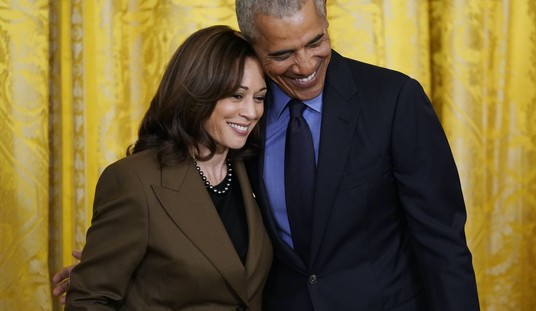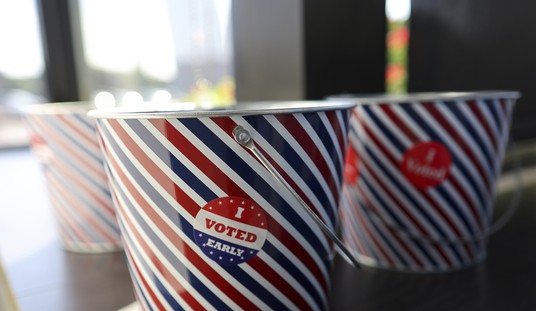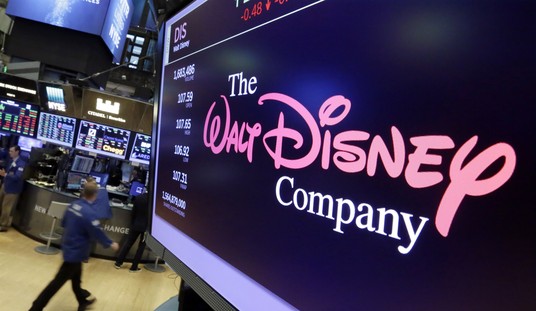It has hardened into an article of faith among conservatives that Trump will lose in a landslide. I’ve seen talk of Clinton winning 500 electoral votes. Having looked at my own record of predictions this election cycle (my only correct one was predicting that Rubio would flame out) and those of other folks, I think that, no matter how much we loathe Trump, we need to have the humility to consider that he might very well win. What convinces me that this campaign, assuming Hillary neither drops from a stroke or nor is indicted, will be closer that predicted is the fact that the left is sounding warnings about Hillary’s weakness.
Via Huffington Post’s Betsy Woodruff we have Hillary Clinton Is the Jeb Bush of the Left. This article is monumentally unfair to Bush. Jeb, after all, does have a track record of accomplishments as Florida’s governor. Bush is unfailingly polite and kind. You can’t say the same about Hillary Clinton. But the larger critique is spot on.
It’s easy to forget how dumb we’ve been.
Seventeen months ago, Jeb Bush announced over Facebook that he would be starting a Leadership PAC to “facilitate conversations with citizens across America” about whether he would be a good president.
“Onward,” he signed the note.
Through Washington, shockwaves pounded. A Leadership PAC? A listening tour? Can he even be stopped?
There were similarly reverential pronouncements of inevitability when Hillary Clinton released a sunny YouTube video announcing her presidential plans. Like Jeb, she put in the time in the policy trenches. She earned it. And like Jeb, she literally spent decades meeting donors, building teams, growing trust with party officials, fostering loyalties—doing everything right. Jeb and Hillary headed into their parties’ respective primaries with godlike name ID’s and rapper money. And everyone freaked out; the parties, after all, would decide—so how could they not win?
In terms of public policy, of course, the two have vast disagreements—particularly on the issues of abortion and LGBT rights. But stylistically and biographically, the pair have eerie similarities—including their vulnerabilities. As a duo, they’ve given East Coast pundits ample opportunities to mortify themselves. Oversold and overestimated, the pair demonstrate just how meager is the appetite for centrist-leaning, dynastic optimists. Jeb’s defeat foreshadowed Clinton’s struggles. So the facts are hard to get around: Hillary is the Jeb of the left.
This is correct. When Jeb Bush announced, the number of conservatives who either immediately moved to his side or confessed resignation that this would be election of political dynasties (how do the Clintons qualify as a “dynasty”? I don’t know.) Had Hillary Clinton not belonged to a party where a Stalinist-like order of precedence prevails, if she had had to face 16 hungry rivals instead of a single geriatric Bolshevik, she would have been eliminated early on.
A more interesting perspective from within the left comes from Salon and Donald Trump is going to win: This is why Hillary Clinton can’t defeat what Trump represents. For all the trailer park level of Marxist dialectic in the article, the author makes some interesting points. In essence, the author argues that the battle between Trump and Clinton is a battle between reality (Trump… yeah, I know) and abstraction (Clinton) and in this electoral climate where people are disgusted with the status quo, Trump has an advantage.
Trump is a businessman, while Mitt Romney was a businessman too, yet I predict victory for the former while the latter obviously lost miserably. What is the difference? While Trump “builds” things (literal buildings), in places like Manhattan and Atlantic City, places one can recognize and identify with, and while Trump’s entire life has been orchestrated around building luxury and ostentatiousness, again things one can tangibly grasp and hold on to (the Trump steaks!), Romney is the personification of a placeless corporation, making his quarter billion dollars from consulting, i.e., representing economic abstraction at its purest, serving as a high priest of the transnational capitalist class.
No one can visualize the boardroom Romney sat in, as head of Bain Capital, but, via The Apprentice, everyone has seen, for more than a decade, what Trump’s boardroom looks like, and what it takes to be a “winner” in the real economy. What was that façade behind the collapse of fictitious corporations like Enron in the early 2000s? Trump supposedly pulled the veil off.
In the present election, Hillary Clinton represents precisely the same disembodiedness as Romney, for example because of her association with the Clinton Foundation. Where did the business of the state, while she was secretary of state, stop, and where did the business of global philanthropy (just another name for global business), begin, and who can possibly tell the difference? The maneuverings of the Clinton Foundation, in the popular imagination, are as arcane as the colossal daily transactions on the world’s financial exchanges.
He has a point worth considering. You can make a good case that this is Obama vs Romney again except with the Hope and Change of millions riding atop signature comb-over while Hillary is telling us that things are actually pretty good and the system is great, it just needs a few tweaks. Yes, we can argue that all of those Trump ventures have left smoking craters but I think we are seeing that among a core base of support Trump is infallible and they refuse to hear the truth. And among the GOP establishment now flocking to Trump’s standard, they simply don’t care about his record because he is the path to political power and another turn at the trough of crony capitalism.
Everything about Clinton—and this becomes all the more marked when she takes on the (false) mantle of speaking for the underclass, with whom she bears no mental or physical resemblance—reeks of the easy mobility of the global rentier class. Their efficacy cannot be accounted for, not through the kind of democratic process that is unfolding before our eyes as a remnant of the American founding imagination, her whole sphere of movement is pure abstraction.
In this election, abstraction will clearly lose, and corporeality, even if—or particularly if—gross and vulgar and rising from the repressed, will undoubtedly win. A business tycoon who vigorously inserted himself in the imaginations of the dispossessed as the foremost exponent of birtherism surely cannot be entirely beholden to the polite elites, can he? Trump is capital, but he is not capital, he is of us but also not of us in the way that the working class desires elevation from their rootedness, still strongly identified with place and time, not outside it. After all, he posed the elemental question, Where were you born?
Again, there is a significant truth here. All dishonesty is not the same. We don’t really believe the barker at a carnival sideshow. We know he’s overselling. We know we are not going to get what we paid for. But we are amused by his schtick and we are willing to be fooled to be entertained. This willingness to go along with the deception is the very heart and soul of reality TV. The dishonesty that Clinton brings, though, is shifty and dangerous. She’s the rat-faced time-share salesman. She’s selling whole life insurance to welfare recipients. You know she’s lying but she is both unpleasant and overly earnest. Where the barker relies on you agreeing that he is pretty much like Everyman, Clinton relies on an air of superiority when she makes her con and she tries to make you feel stupid by not going along with her dishonesty. If you know you are being conned, it makes you feel better if you are in on the joke and not merely the butt of it.
And to a great degree, the same impulse that is motivating Sanders voters is precisely the same impulse that has make Trump the GOP nominee. Anger, frustration, and disappointment may fuel political movements but they are not wedded to a political philosophy. Trump and Sanders both claim to be against the self-dealing of the wealthy, even though their own lives indicate that this is anything but true. To voters who are incensed by the self-dealing, the method of stopping it is rather academic so long as the grievance is addressed.
Trump has the ability to build a significant coalition simply because he is a voice for those who see the deck stacked against them. His lack of an ideology, to them, is a feature not a bug. The left is realizing that Trump is not a hapless buffoon and it would do us well to realize the same.














Join the conversation as a VIP Member